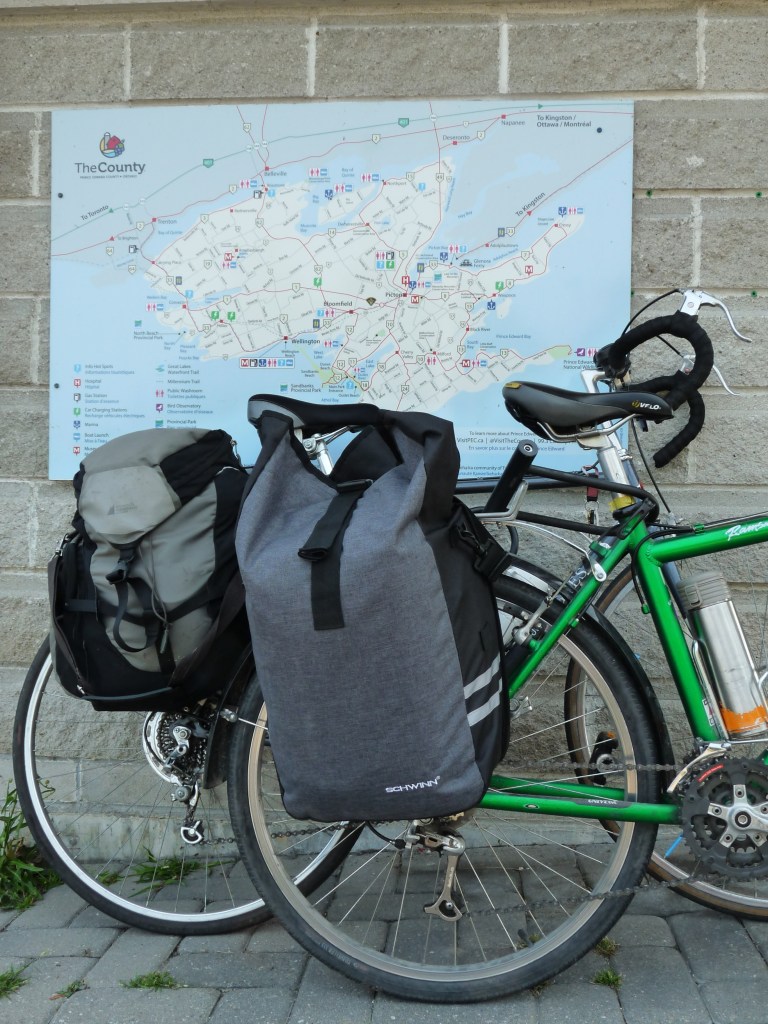This is the eighth in a series, “History En Vélo,” about cycling and thinking historically, shared with NiCHE.

By Josh MacFadyen
I’m not sure I belong in this series on cycling and its connections to academic thinking. I am nothing more than a stubborn bike commuter. I’m not a racer, club member, gearhead, or aficionado of any kind. I don’t care if anyone sees my bikes (they’re beaters) or sees me on my bike (my outfits never match). I’ve never worn Lycra. OK, let me rephrase that. Everyone over the age of 30 wears some Lycra; I just don’t wear any visibly. I don’t talk much about biking either. The topic is often dull to the cycle-hesitant and pharisaic to the cycle-adverse. To be clear, I love cycling. It’s the best part of my day. I love how it clears my mind, how it changes the way I see the environments I study, and how it gets me to work. But I try to follow a different approach when spreading the gospel of gearshifting: I just ride. I ride a lot, I enjoy the benefits it brings, and I occasionally bring someone new along. This post shares my brief experience as a cyclist and the surprising lesson cycling taught me about the history of land use and energy transitions on Prince Edward Island.
I’m a relatively recent convert to cycling. I knew very little about it until about 10 years ago. That was when a friend who had moved to PEI brought me and a second bike along to the Island’s new “Alpine” trails. He was from British Columbia, of course, and found our rolling hills very cute. Between his lessons and a taste of riding a good bike, I was getting hooked. But at that time I was mainly looking for something else from bikes. I had recently completed a PhD on rural and environmental history, so naturally I was looking for a cheap and low-emission way to get around as I searched for work. I was aware of the tensions between cyclists and motorists, and I understood the incompatibility of car-based infrastructure and the desire for cheap, low-emission transportation. However, the best argument for cycling came from Mr. Money Mustache, a humorous financial blogger who called bikes automatic life-balancing machines. Using a bike for as much of your commuting and shopping as possible keeps your communities local, your transportation bills down, your emissions low, and your heart rate up. That was reason enough, but like everyone else writing in this series, I also discovered new ways of understanding rural and urban landscapes, and new ways of teaching the environmental history of my neighbourhoods.
This is what keeps me stubbornly commuting to work. Between my PhD in early 2010 and today, I’ve been fortunate to find work at UPEI, Western, Saskatchewan, Arizona State, and now UPEI, again. I have bought exactly zero semesters of parking passes from any of those universities. My wife and I have fought the urge to get a second vehicle, or to “put another one on the road” as they say in PEI. It’s a challenge with a busy and relatively large family. It means we run a house with exactly 0.16 cars per person. Our bike fleet fluctuates, but it is usually closer to 1.5 bikes per family member.
This lifestyle allows the stubborn commuter to spend a little more on bike gear than, say, the occasional rider’s budget, but even still the costs are minimal compared to owning more cars. Bike components and quality matter, but for commuting my list of essential “gear” is quite short: a helmet, rechargeable lights, and a waterproof pannier bag with a rack and a laptop sleeve. The list changed over time — I needed more bike locks when I was a junior postdoc without an office; I need more padding now that I’m older. The list also changed dramatically depending on my geography. In Arizona you don’t bike anywhere without water, especially in the summer. In the Saskatoon winter, you don’t bike anywhere without face coverings and thick gloves. Continue reading →









